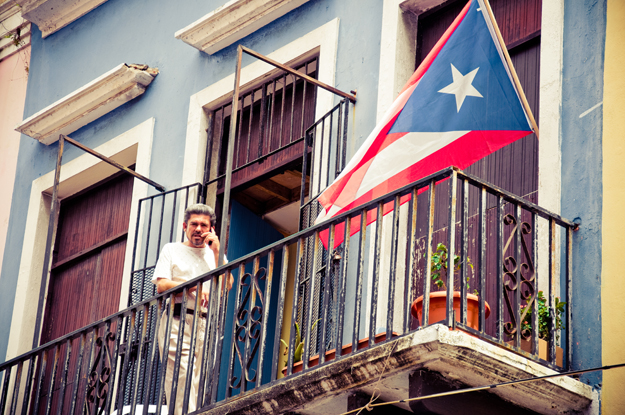This story has been updated
Beyond Puerto Rico’s undefeated march to the World Baseball Classic final, it seems the island can’t catch a break.
First, ongoing mediated talks between its government and debtors over how to restructure its $70 billion debt before a key May 1 deadline aren’t going well, although failure would expose Puerto Rico to a torrent of lawsuits or court-mediated restructuring. The island was also caught in President Donald Trump’s Twitter crosshairs this week when he charged Congressional Democrats working to fix its Medicaid shortfall with “trying to (…) bail out Puerto Rico with your tax dollars. Sad!”
Perhaps more worrisome, stakeholders pouring over debt payments and funding options are not addressing the outdated model that is at the core of Puerto Rico’s economic stagnation or taking steps to promote growth – arguably the most important measure to avoid future crises.
“Puerto Rico’s problem was poor economic policymaking,” José Villamil, economist and chairman and CEO of Puerto Rico’s leading economic, market strategies and planning consulting firm, told AQ. “The most important thing going forward is to ensure that the economic policy is made effectively.”
As creditors and government officials continue to trade barbs away from the negotiation table, it’s become painfully clear that no one is willing to talk about the root causes of the crisis and how to overcome them. The problem has been a long time in the making.
“Puerto Rico’s problems didn’t start in 2006,” the first recorded year of the island’s recession, Villamil explained. “If you look at Puerto Rico’s economic performance from 1975 until 2000, you’ll see that the economy only grew about 2 percent.”
Puerto Rico’s recession – which some experts argue has already crossed over into depression – is complicated by Puerto Rico’s unique legal status. The island is an unincorporated territory of the U.S. and has neither all the rights nor all the responsibilities of a state. It also lacks the autonomy to restructure its own debt independent of the U.S. government.
Puerto Rican administrations over the past forty years were able to mask the lack of economic growth with federal funding and bonds whose interest is exempt from local, state and federal taxes – a status granted by the Jones-Shafroth Act a century ago. The seemingly easy cash strategy led to a dangerous cycle of borrowing to fill budget shortfalls over decades and administrations.
The other shoe dropped when Congress announced in 1996 the phase out of section 936 of the corporate tax code that had made it more lucrative for American companies to manufacture on the island. As companies moved out ahead of the 2006 end date imposed by the tax provision’s phase out, the island failed to find new engines to fuel growth.
“This is an economy that is still structured on a 1950s state-centered economic format,” David Lewis, vice president of Manchester Trade, told AQ. “We’re in 2017, but Puerto Rico still has a model of utility monopoly (energy, education, healthcare); everything is state-centered in a world that isn’t.”
Last June, Congress passed the PROMESA Act to address the economic crisis that then-Governor Alejandro García Padilla had warned could rapidly become a death spiral. One of the act’s key provisions prevented creditors from suing Puerto Rico over missed payments. This is the measure that will expire on May 1, bringing additional urgency to the cash-strapped island’s quest to restructure its debt.
The island’s current governor, Ricardo Rosselló, and the oversight board tasked under the PROMESA Act with making sure Puerto Rico pays back its creditors have put forth fiscal plans that depend heavily on austerity and new taxes in order to pay off the staggering debt. Their plan does little, however, to address the 40-plus years of economic stagnation or the outdated economic model behind it.
Under this plan, those who had the least say in the often obfuscated borrowing spree of generations of administrators – the Puerto Rican population – are the ones who will suffer most to pay it back. They are already bearing the burden of the economic crisis. Nearly half of Puerto Rico’s residents, including 63.7 percent of children under the age of 5, live below the federal poverty level. Unemployment has consistently hovered around 12 percent and, largely as a result, the island registered a net loss of 446,000 people to the U.S. mainland from 2005 to 2015.
Furthermore, it’s unclear how the proposed additional austerity and taxes will help Puerto Rico’s economy grow and create jobs to avoid future crises. In fact, according to Nobel-laureate Joseph Stiglitz, the board’s plan would worsen the economic crisis with a GNP decline of 16.2 percent in the first fiscal year alone, a slump nearly unprecedented in a country that’s not at war (or Venezuela).
If the purported goal is to help Puerto Rico’s economy grow, the current plan is inept. And if the goal is simply to pay off the debt, no matter the cost to the sustainability of the economy down the line, it will still fall short. No matter how many essential services are cut and how many new taxes are added, without new growth and job creation – and without fostering the type of environment that increases investor confidence to facilitate this growth – there’s just not enough money to pay back all that Puerto Rico owes.
More of the same bitter medicine will not bring Puerto Rico out of its economic hole. There are no easy answers, but there are a few key places to start. First, the president’s Twitter-blasts aside, Congress has an obligation to the 3.5 million U.S. citizens on the island. Puerto Rico receives considerably less than U.S. states in Medicare and Medicaid funding, forcing the island’s government to cover the difference and exacerbating an already precarious economic crisis. Without additional funding, the block grant that funds Puerto Rico’s Medicaid program will run out of money this year, and the island will instead receive funding that would cover less than one-third of its Medicaid-related expenses, pushing the island into a health crisis.
Legislators must act this year to treat Puerto Ricans equitably under Medicare and Medicaid. Puerto Ricans and their doctors deserve the same coverage and payment as patients and providers on the mainland. Not only is this a moral obligation, but it will also help stem the brain drain of doctors off the island.
Second, the board needs to look beyond austerity and think creatively about how to foster an environment conducive to growth. A clear place to start is by working with Governor Rosselló to create more public-private partnerships that transfer management of public services to the private sector for a set number of years and free up some liquidity. They can also harness the entrepreneurial spirit of the Puerto Ricans who have remained, fostering entrepreneurship as well as small and medium enterprise growth to reduce the unemployment rate and spur sustainable growth.
Neither of these will be quick fixes. They won’t quell the call of creditors to be paid back immediately or stop them from suing come May 1. But these steps are vital to making sure Puerto Rico isn’t mired in the same mess 10 years from now. One decade of suffering is enough.
This story was updated on April 28 to include President Trump’s references to Puerto Rico on Twitter.
—
García is a production editor for Americas Quarterly. Follow her on Twitter @LeaniGarcia.







